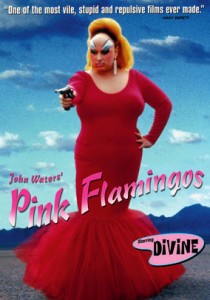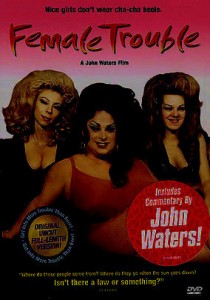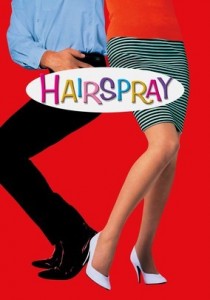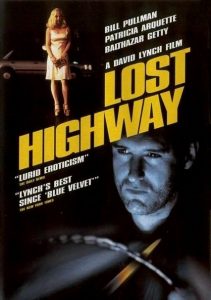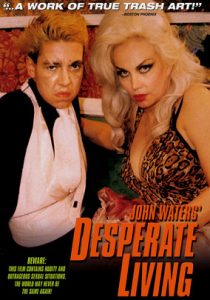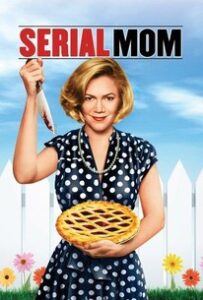Pink Flamingos-1972
Director John Waters
Starring Divine, Edith Massey
Top 250 Films #165
Scott’s Review #359
Reviewed January 9, 2016
Grade: A
One of the truest and best late-night gross-out films of all time, Pink Flamingos (1972) breaks down barriers I never thought possible in film and contains one of the most vomit-inducing scenes ever to grace the movies.
The film is certainly one of a kind and will only be appreciated by a certain type of film-goer. Pink Flamingos is raw, entertaining, and must be seen to be believed.
Outrageous in every way and shot in a documentary style, the film features weird close-ups and amateurish camera angles, only adding to the fun.
I love the film.
In what director John Waters famously dubbed the “Trash Trilogy”, along with similar films Desperate Living and Female Trouble, Pink Flamingos has the dubious honor of being the best of the three.
Waters’ stalwart, Divine, plays Babs Johnson, an underground criminal who lives a meager existence in a trailer with her mentally challenged son, Crackers, and her bizarre, egg-obsessed mother, Edie (Massey). Babs’s companion, Cotton, joins them.
In an attempt to win the “Filthiest Person Alive” contest and usurp Babs from achieving this distinction. The Marbles (Mink Stole and David Lochary) set out to destroy her career.
Pink Flamingos is complete and utter over-the-top fare, but I have fallen in love with the film over the years.
Let’s say it is a type of film that is an acquired taste, and one will eventually revel in the madness or be disgusted with its bad taste.
Waters, a truly creative person, breaks new ground in filth. On a budget of no more than $10,000, it is impressive how he pulled this off.
The antics that Babs and the Marbles engage in are downright crude, but the extreme nature of the fun is exactly what is to love about the film. Hysterical is the character of Babs’s mother, Edie.
Confined to a crib and constantly inquiring about the Egg Man, she is obsessed with eggs and wants to eat nothing else. She eventually marries the Egg Man. The character is entertaining beyond belief.
The Marbles run a clinic in which they sell stolen babies to lesbian couples for cash. When they send Babs a box of human excrement and a card that says “fatso”, the war between the two sides is on.
The highlight of the film is the main sequence in which Babs holds a birthday party. A male contortionist flexes his anus in rhythm to the song “Surfin’ Bird”, which may be the only film featuring an anus.
How Waters got away with some of this stuff is mind-blowing.
The most disturbing scene occurs at the very end, when Babs watches a dog do “its business” on the street and then picks up the excrement and eats it, revealing to the audience a toothy (and brown) smile.
Reportedly, Divine did this act. As the film ends, Babs truly is “The Filthiest Person Alive”.
Thanks to the genius of John Waters and Divine, and the superlative supporting cast, Pink Flamingos (1972) is a reminder that creativity and unique humor need not conform to a specific style or follow a road map.
Waters throws out any film criteria, instead creating a masterpiece of warped fun and disgust.
